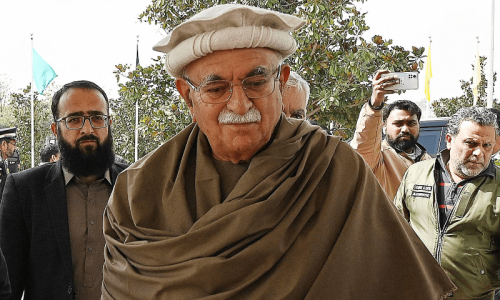IT is only as information has leaked out in bits and pieces over the years that we have understood how Kargil came to be what it really was: a poorly planned and badly executed operation that put hundreds of our soldiers at risk, and not the mujahideen-led jihad initially sold to the nation. New revelations paint an even bleaker picture of this gamble that Gen Musharraf took as army chief. One man’s testimony cannot provide a complete picture of a controversial armed conflict. But when the head of the ISI’s analysis wing at the time says he only found out about the operation after it had been launched — and that the same was true for most of the corps commanders and senior army staff, including the head of military operations — his words should prompt yet another look at the Kargil fiasco. Not taking the senior leadership into confidence, both within the army and in the other armed forces, had obvious consequences: the lack of a viable strategy, inadequate logistical planning and a poor calculation of the Indian response, all of which cost Pakistan the lives of hundreds of soldiers, further damaged relations with India and contributed to the political upheaval that followed.
And yet aside from occasional insights provided by those who are relatively well-informed and have chosen to speak up, there is no objective public record of what took place. Gen Musharraf had reportedly banned discussion of the topic at the National Defence University, where military operations otherwise form important case studies. And while it eventually surfaced that scores of Pakistani soldiers had died, the lies the media was fed in the early days of the conflict indicate that misinformation was a critical component of this operation. Told in daily press briefings that this was a mujahideen struggle and shown what appeared to be mujahideen training camps, reporters were blatantly used to mislead and rally the public.
Many questions still remain, including about the role of the political leadership. Was the prime minister, Nawaz Sharif, aware of the plan? Was he ordered to seek out American help for a ceasefire, or was he responsible, as Gen Musharraf has claimed, for the operation’s failure? A decade and a half later, it is time for an objective, official examination of the facts, and for making them public. If Lt Gen (retd) Shahid Aziz and others who have spoken up are wrong, they should be contradicted. Even though preventing future mistakes is all that can be done now, the country deserves to know the truth.












































